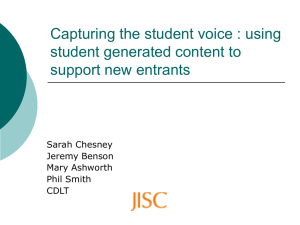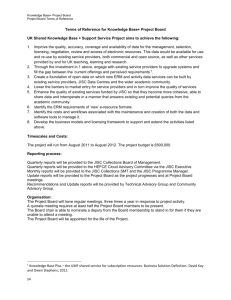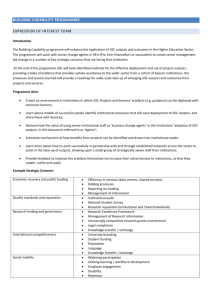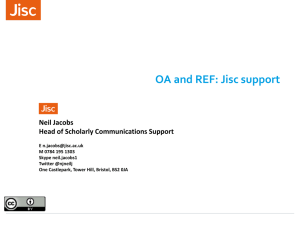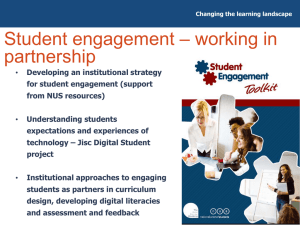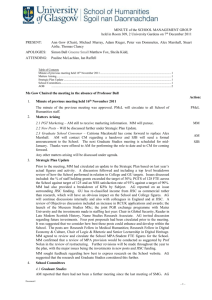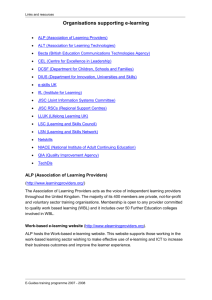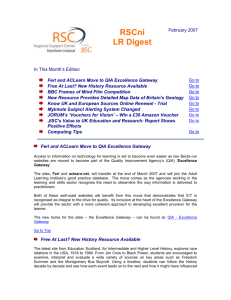Annex 8 – Jisc Advisory Group for Scholarly Communications ToR
advertisement
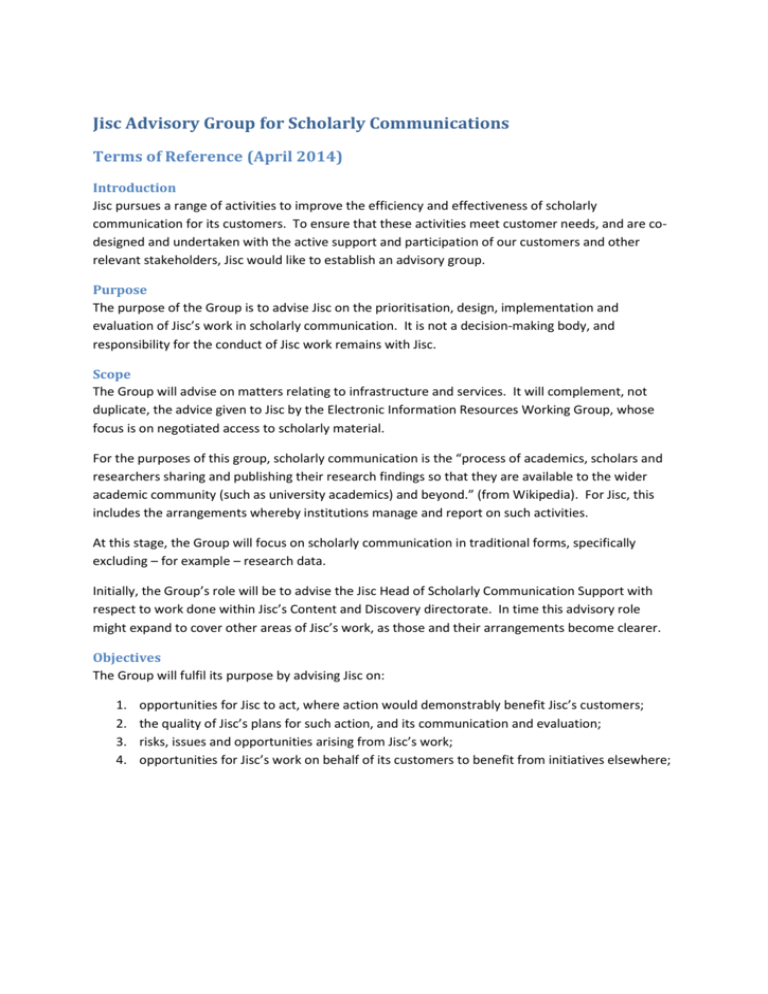
Jisc Advisory Group for Scholarly Communications Terms of Reference (April 2014) Introduction Jisc pursues a range of activities to improve the efficiency and effectiveness of scholarly communication for its customers. To ensure that these activities meet customer needs, and are codesigned and undertaken with the active support and participation of our customers and other relevant stakeholders, Jisc would like to establish an advisory group. Purpose The purpose of the Group is to advise Jisc on the prioritisation, design, implementation and evaluation of Jisc’s work in scholarly communication. It is not a decision-making body, and responsibility for the conduct of Jisc work remains with Jisc. Scope The Group will advise on matters relating to infrastructure and services. It will complement, not duplicate, the advice given to Jisc by the Electronic Information Resources Working Group, whose focus is on negotiated access to scholarly material. For the purposes of this group, scholarly communication is the “process of academics, scholars and researchers sharing and publishing their research findings so that they are available to the wider academic community (such as university academics) and beyond.” (from Wikipedia). For Jisc, this includes the arrangements whereby institutions manage and report on such activities. At this stage, the Group will focus on scholarly communication in traditional forms, specifically excluding – for example – research data. Initially, the Group’s role will be to advise the Jisc Head of Scholarly Communication Support with respect to work done within Jisc’s Content and Discovery directorate. In time this advisory role might expand to cover other areas of Jisc’s work, as those and their arrangements become clearer. Objectives The Group will fulfil its purpose by advising Jisc on: 1. 2. 3. 4. opportunities for Jisc to act, where action would demonstrably benefit Jisc’s customers; the quality of Jisc’s plans for such action, and its communication and evaluation; risks, issues and opportunities arising from Jisc’s work; opportunities for Jisc’s work on behalf of its customers to benefit from initiatives elsewhere; Membership The Group will most effectively fulfil its purpose by including members who are directly concerned with practical aspects of scholarly communication, across universities, research funders, libraries, publishers and others. The membership will therefore comprise representatives from: senior academics libraries from Russell Group universities academic libraries from outside the Russell Group research managers repository managers institutional finance managers the UK Funding Councils the UK Research Councils the Wellcome Trust CrossRef learned societies publishers that publish subscription journals open access journal publishers publishers that publish open access monographs suppliers of publishing management systems suppliers of repository systems suppliers of research information management systems suppliers of library management systems suppliers of serials management systems Stephen Curry (Imperial College) David Prosser (RLUK) Ann Rossiter (SCONUL) Sally Puzey (ARMA) Yvonne Budden (UKCoRR) Karel Thomas (BUFDG) Steven Hill (HEFCE) Geraldine Clement-Stoneham Robert Kiley Ed Pentz Madeleine Barrow (Academy of Social Sciences) Alicia Wise (Elsevier, Publishers Association) Mark Patterson (eLife) Hazel Newton (Palgrave MacMillan) Martin Eve (for Public Knowledge Project) Sheridan Brown / Les Carr (EPrints) Thorsten Hollrigl (Thomson Reuters Converis) Jane Burke (Serials Solutions) Paul Harwood (EBSCO) Operation The Group will be chaired by someone representing an institution. It will meet quarterly, and be serviced by Jisc. It will also conduct business by email.
